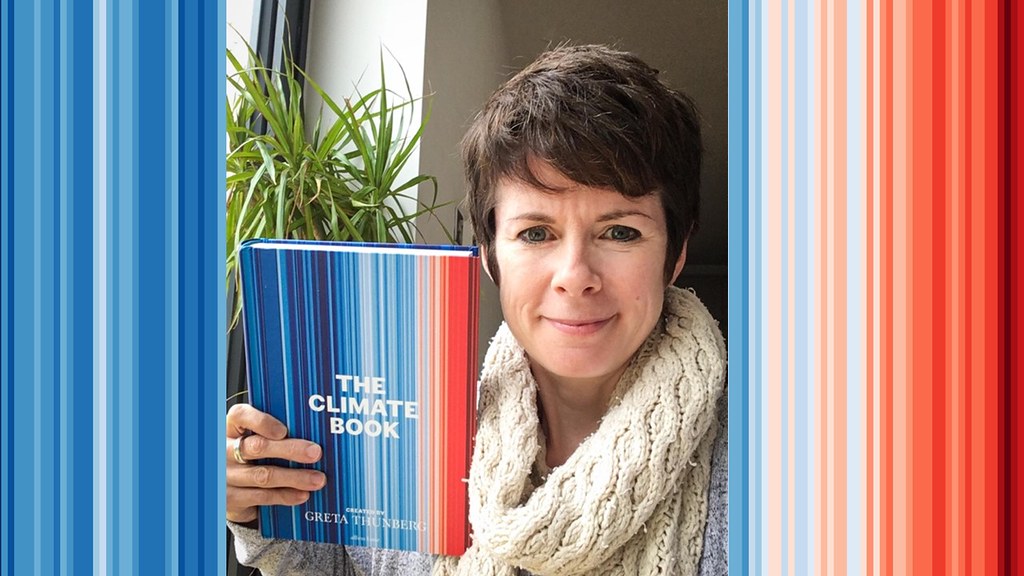Leading environmental psychologist Professor Lorraine Whitmarsh, from the Department of Psychology at the University of Bath, has co-authored a chapter in ‘The Climate Book’ by Greta Thunberg.
The Climate Book
With Centre for Climate Change and Social Transformations (CAST) colleague, Dr Stuart Capstick, Prof Whitmarsh writes in the new book about the associations between individual environmental actions (e.g., driving or flying less, saving energy) and wider social and system transformations (e.g., changes to buildings and cities, new laws).
In chapter five of Thunberg’s book, Capstick and Whitmarsh set out the seemingly ‘troubling mismatch’ between the enormity of the climate crisis and the smallness of the response asked of individuals. But, as they expand, ‘if this is a disheartening viewpoint, the good news is that it also represents a false dichotomy.’
As they set out, ‘focusing on the two extremes – the individual versus the systemic – overlooks the vast territory in between. It is in this space that we are able to interact with the people around us, helping to bring about change through shaping social expectations and creating shared realities.’
The chapter draws on research which shows how individual environmental actions can spark positive ripple effects, leading to broader changes across a population. Examples include the proliferation in the use of e-bikes, and even how households installing solar panels have a measurable effect on the likelihood of nearby homes following suit.
Professor Whitmarsh said: “Often individual change and systems change in response to the climate crisis are presented as two distinct topics. This can lead to a sense of hopelessness among individuals that their actions – however positive – are only a drop in the ocean compared to the enormity of the problem that climate change presents.
“Our message instead is a more a positive one: individual actions do matter, and combined they determine broader social transformations which are required from policymakers and industry.
"Nobody represents this better than Greta Thunberg – whose own actions have inspired and changed the lives of so many others around the world – and we are delighted to have been able to contribute to this timely book.”
Mobilising society
These questions will come into sharp focus next week at a CAST-Institute for Policy Research online event at the University of Bath where Prof Whitmarsh and colleagues will lay out research and recommendations from the recent House of Lords report they contributed to: ‘In our Hands: behaviour change for climate and environmental goals’.
Released last month, this suggested that a third of emission savings by 2035 must come from people changing their own behaviour – be that installing heat pumps or eating less meat – and that without these individual changes, the UK government will fail to meet its ambitious net zero climate targets.
Speakers on the panel for the event which takes place next Monday 7 November include: Baroness Parminter, who chaired the House of Lords Environment & Climate Change (ECC) committee leading the inquiry; Professor Lorraine Whitmarsh MBE, who was special advisor on the inquiry; Hirra Khan Adeogun (Head of Car Free Cities); and Nick Molho (Executive Director of the Aldersgate Group).
Chairing will be Professor Nick Pearce, Director of the IPR and former Head of the No.10 Downing St Policy Unit.
Commenting in advance, he said: “The House of Lords Environment and Climate Change Committee is clear both that the UK’s net zero’s goals cannot be met without widespread behaviour change and that the transition to net zero must be socially just.
"That means that the wealthiest in our society must reduce their carbon emissions extensively and consistently, and that those on low incomes who emit the least must be supported to change their consumption patterns."

